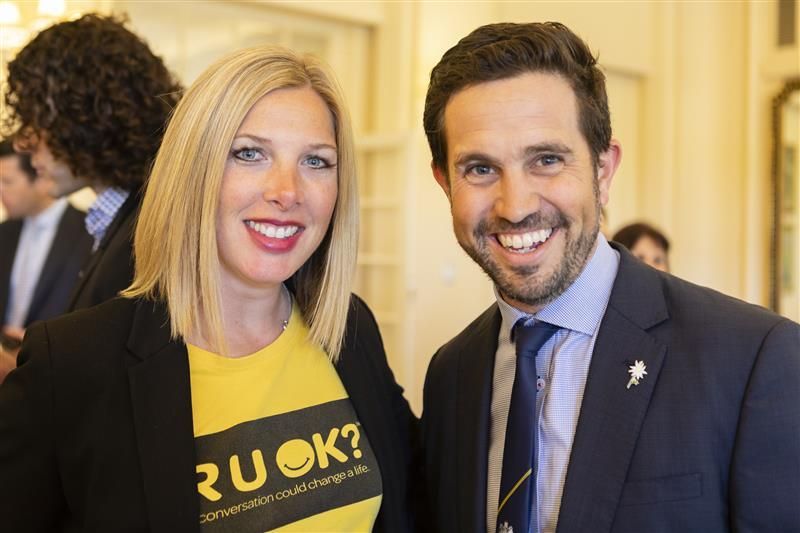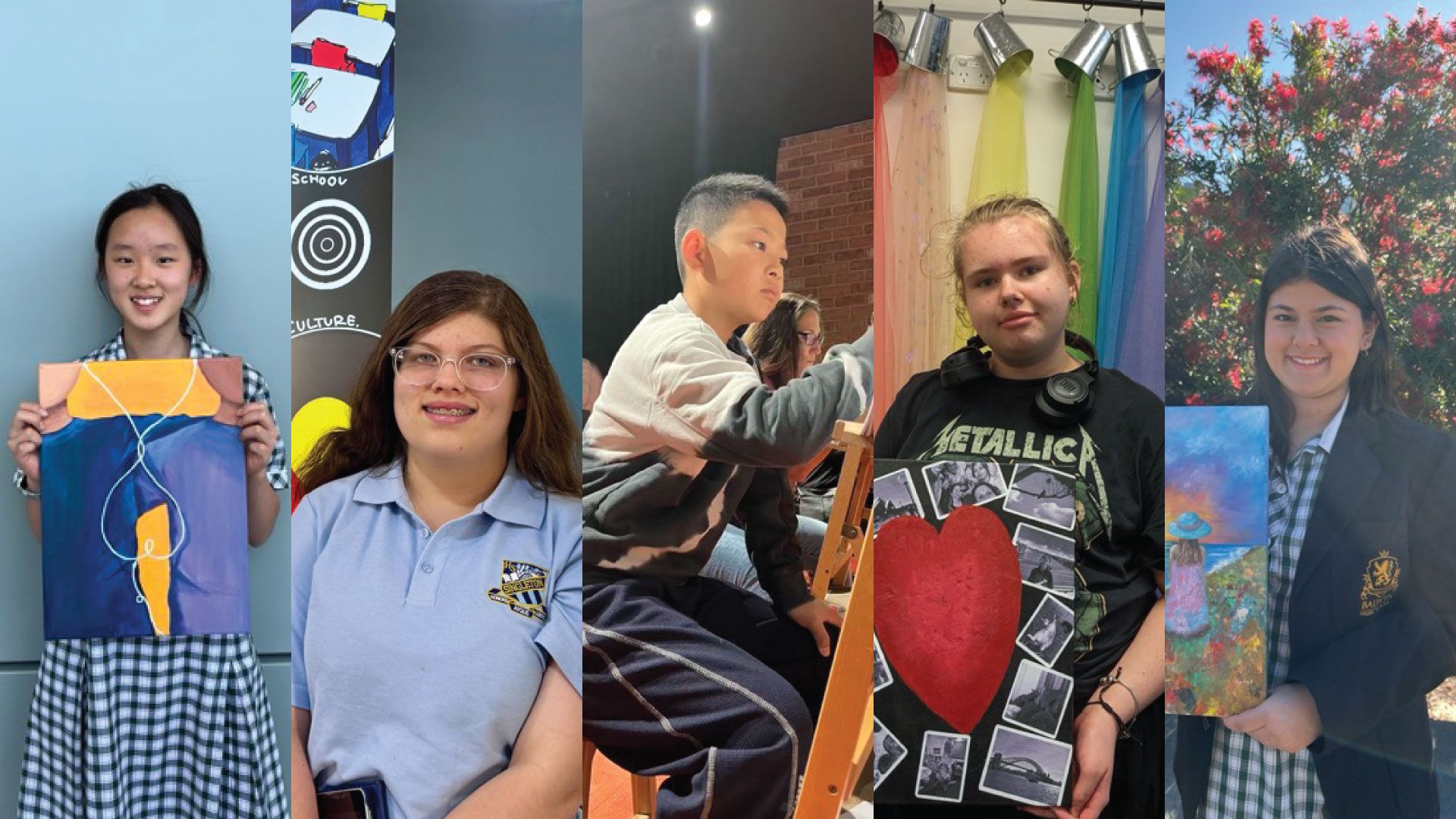Tips for having an R U OK? conversation with neurodivergent people
An R U OK? conversations might look a little different if you’re talking to a neurodivergent person. Here are some helpful tips.

Rachel Worsley and Mathew Farmarkis, co-founders of Neurodiversity Media, who produce accessible information resources for neurodivergent people in the workplace, joined us to talk about having R U OK? conversations with neurodivergent people.
Hi Rachel and Matthew, thanks for speaking to us. When we say neurodivergent people, who are we talking about?
In Neurodiversity Media’s resource library it covers autism, ADHD, dyslexia, dyspraxia, struggle coordination movement, dyscalculia (struggle with numbers) and Tourette syndrome.
R U OK? is about supporting those in our world who might be struggling with things, big and small. What are some additional challenges neurodivergent people face that we should be aware of?
Autistic burnout is a big one. The three main features of it being chronic exhaustion, loss of function and reduced tolerance to stimulus.
Can you talk to us about what are some of the signs someone may be experiencing autistic burnout?
A lot of autistic people do feel like we have been just getting through day-to-day life. Getting organised, getting dressed and doing our work can already take such a huge toll on us mentally, even though it's sort of stuff that most people can take for granted. Without having ways to recharge, safe spaces to recharge or permission to go to spaces to recharge, it can bring on that burnout and chronic exhaustion.
That can lead to a loss of function in day-to-day skills - things like getting out of bed or talking even. That happened to me, I didn’t want to talk, I went to non-verbal communication and wanting to write text.
Reduced tolerance to stimulus can be bright lights, lots of noises. Also if you’re being taught to stop stimming (stimming being habits that autistic people may engage in like hand flapping or playing with stuff all the time). Those kind of things may seem weird, but can actually be really helpful for autistic people.
If somebody is normally pretty calm, but they're just sort of withdrawing a bit more and feeling overwhelmed with sensory stuff, then that is a sign that clearly they're going through a difficult period and might need support.
For those wanting to check in on their neurodivergent friends, family and colleagues, how should they approach an R U OK? conversation?
I guess, for autistic people, the main thing is to allow them to be themselves. A lot of the burnout and mental health struggles we face is conforming to society and societal expectations around socialising and that sort of thing. And so just sort of being mindful of that, and providing us that space to recover is really important.
In terms of burnout, helping them and allowing them to decrease sensory overload can really help. Things like not forcing them to make eye contact, being able to indulge in creative habits, like journaling and creative activities. Withdrawing from social activities, is also really helpful. That can be sort of counter intuitive to a lot of mental health advice, but when it comes to autistic burnout, it is actually a legitimate coping strategy for a lot of us.
We’ve been conditioned to just conform to society that we're very much not willing to really speak up or not have the ability to speak up and say we are struggling. That’s why the other person has to really read the signs and say, “actually I think you are struggling, let me take that load off you”.
I think being able to just share your feelings and feeling comfortable and safe to do so is the most important thing. And also being able to physically remove yourself from a situation, so you can just be at a distance from whatever is causing stress or exhaustion. So my tip would be for people to allow and accomodate those things. And the other thing I think is accepting and acknowledging that this can happen for neurodivergent people and it can happen quite easily.
Thanks so much for joining us and providing some really helpful tips and information Rachel and Mathew.
Thanks for having us.
Find more conversation tips here.
If you or someone you know needs some extra support, visit our directory of national support and services here. For support at any time of day or night, call Lifeline on 13 11 14.





















